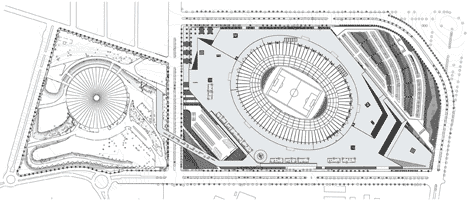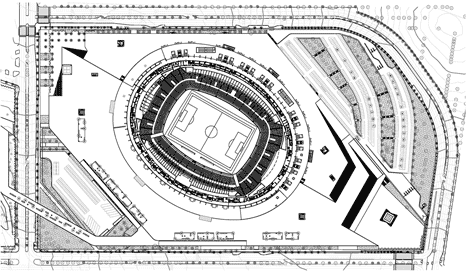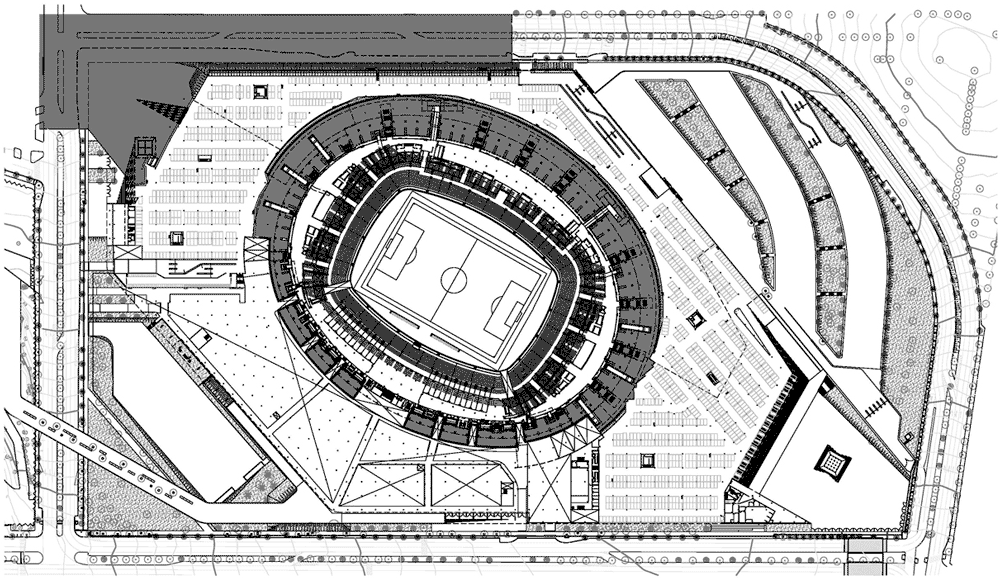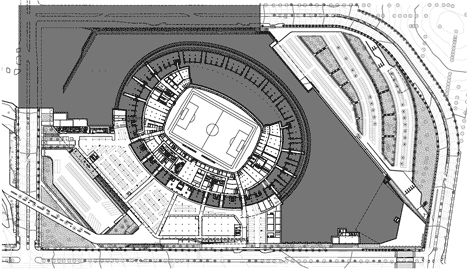Mineirão Stadium renovation by BCMF Arquitetos
Here are some photographs of the renovated 1960s Mineirão Stadium in Belo Horizonte, Brazil, set to host matches during the 2014 FIFA World Cup (+ slideshow).
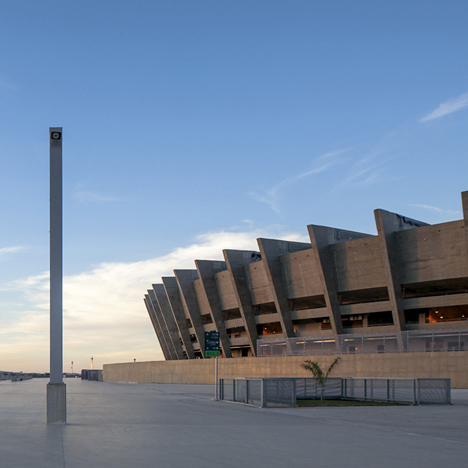
BCMF Arquitetos was commissioned for a complete overhaul of the 1960s football stadium, located on the edge of the Pampulha Lagoon. Originally designed by architects Eduardo Mendes Guimarães Júnior and Gaspar Garreto, the building features an oval-shaped structure with a rhythmic facade made up of 88 projecting ribs.
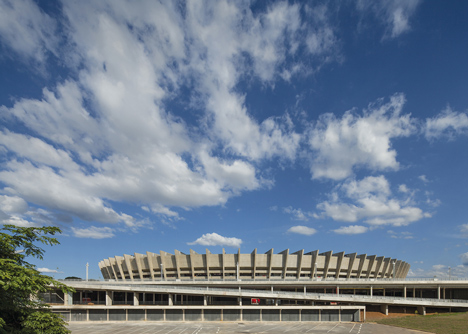
The team stripped the building back to its shell, before adding a new roof, lowering the pitch, upgrading all services and infrastructure, and adding new shops and a dedicated football museum.
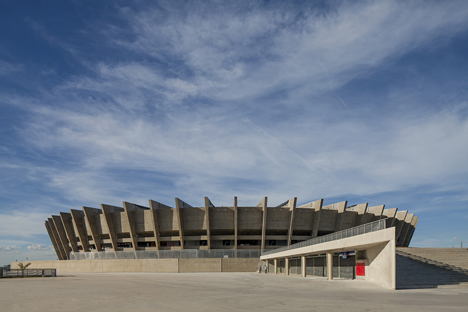
"Since Mineirão is a protected building, the addition of new program could be solely made through the insertion of a platform at its base," said the design team. "Subverting the classic notion of a podium, which refers to a horizontal building with a flat top surface, this platform is carved on the ground and shaped accordingly, creating semi-public squares set at different levels."
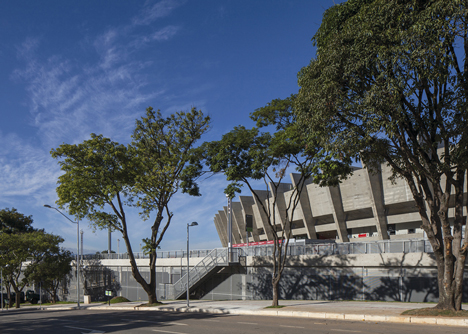
The lowering of the pitch helps to improve sight lines for spectators, while redesigned seating tiers at the lower levels increase the capacity to over 62,000 seats.
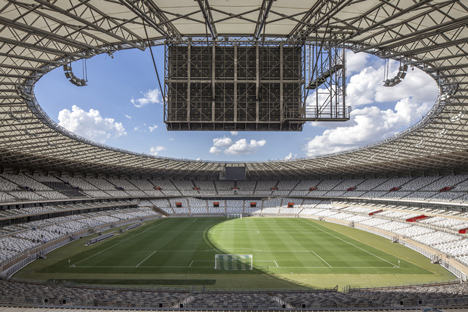
Structural analysis revealed that the structure had subsided by around 30 centimetres. This was corrected using hydraulic jacks and steel cables, before the architects added a cantilevered roof to shelter spectators.
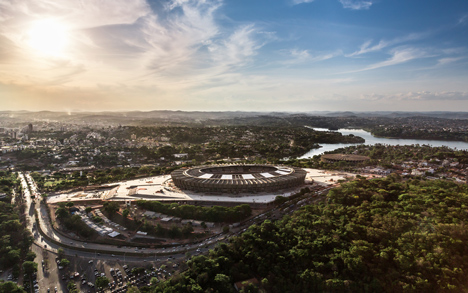
Sustainable technologies were also prioritised. As reported earlier this year, the stadium is the first in the world to be fully powered by solar energy, and uses rainwater harvesting to reduce its water consumption.
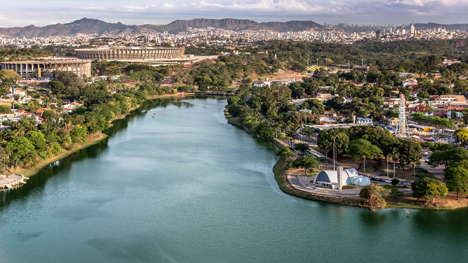
Improvements to the surrounding landscaping involved creating an artificial topography that defines public plazas, seating areas and routes between the stadium's entrances and the nearby Mineirinho Gymnasium.
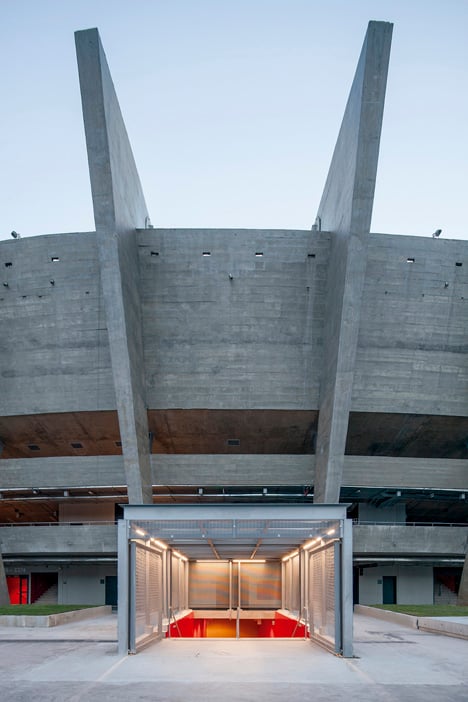
A number of large projects are underway in Brazil, as the country prepares for the 2014 World Cup and the 2016 Olympic Games. Other recently completed projects include a new art museum and art school in Rio and a huge social housing complex in São Paulo.
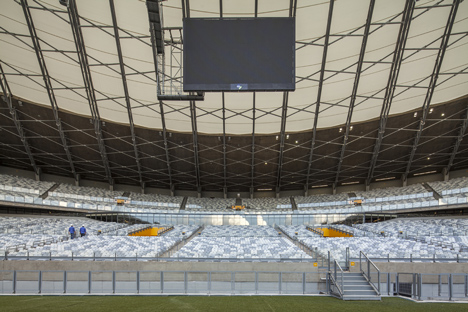
See more architecture on Brazil »
See more stadiums »
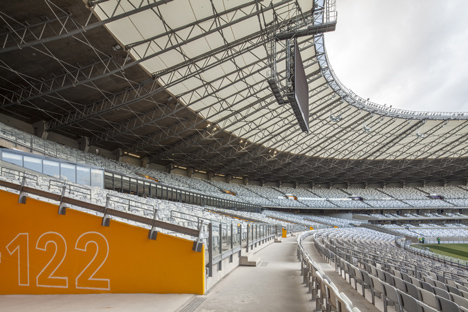
Here's some more information from BCMF Arquitetos:
New Mineirão
Inaugurated in 1965 (original design by Eduardo Mendes Guimarães Júnior and Gaspar Garreto) as the second largest stadium in the world, the Mineirão Stadium is located in the surroundings of the Pampulha Lagoon, close to Oscar Niemeyer's and Burle Marx seminal work, being part of Belo Horizonte's main postcard. As Brazil was chosen to host the World Cup 2014, opportunity came about to transform the traditional stadium, whose façade is heritage listed, into a contemporary multifunctional sports facility.
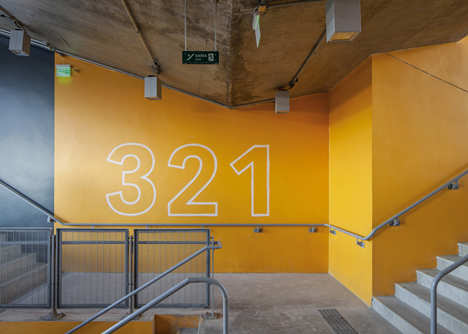
The New Mineirão aims to go beyond its primary role as a world-class sports arena, also offering a range of services, commerce, culture and entertainment for the city, becoming a new hub of activities integrated to the modernist landscape of the leisure and touristic Pampulha complex.
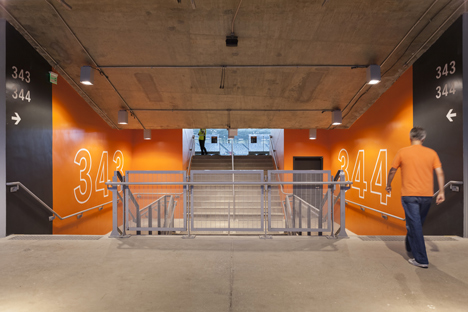
The instrument chosen to make this operation possible was a public-private partnership (PPP), determining that the redevelopment of the stadium would be undertaken by a company which, in return, would be granted its use for the next 25 years. The winner of the bid was Minas Arena Consortium, that invited BCMF Architects, renowned for their expertise in sports architecture, to be responsible for the renovation of the New Mineirão.
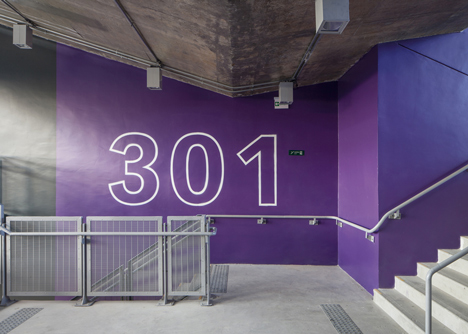
In this context, to transform the "Pampulha Giant" into a modern multifunctional facility, the interventions proposed are both radical and respectful, reinforcing the monumental original structure within the iconic modernist landscape.
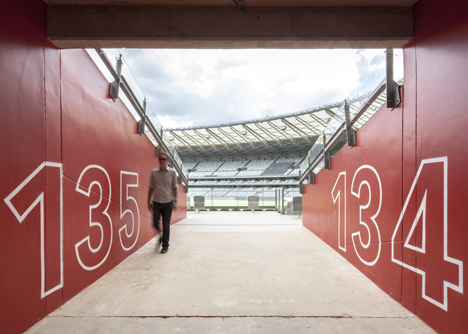
As for the original architecture of the Stadium, basically only the outer "shell" remained: the 88 structural semi-porticos, the concrete roof and the upper tiers. The rest of the "core" was completely rebuilt to guarantee the total overhaul inside the arena, including the new extension of the roof, all the new program and infrastructure, besides the lowering of the pitch and the lower tiers redesign, improving the sight-lines for the new capacity of 62,160 seats.
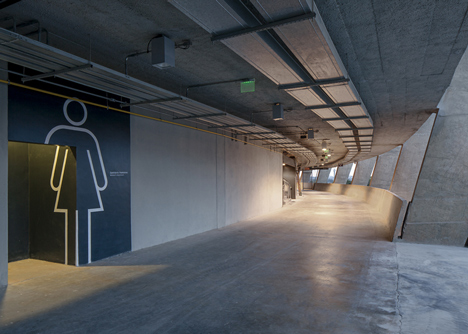
The renovation on the outside is total, with a new 200,000 sqm operational platform separating the spectators' from the accredited flow. The "Esplanade" includes various facilities around the stadium, opened to the public as an immense landscaped plaza, visually linked to the Pampulha Lagoon. This platform is sculpted and moulded to the site as an artificial topography, integrated with the immediate surroundings, being perceived as a continuation of the street domain. Thus, the public is attracted by programs strategically distributed throughout the esplanade, creating areas with potential to generate activities and movement during all day, seven days a week.
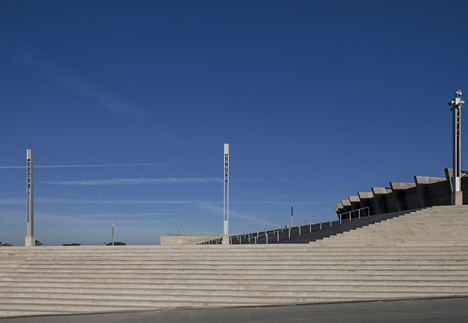
The project has also sustainable features, using solar energy, reusing rainwater, as well as efficient lighting systems, intelligent control of energy and so on (LEED Certification). After the event, many operational areas which are specific for the 2014 World Cup will have other uses (institutional, commercial and leisure programs), contributing for the economic sustainability of the complex.
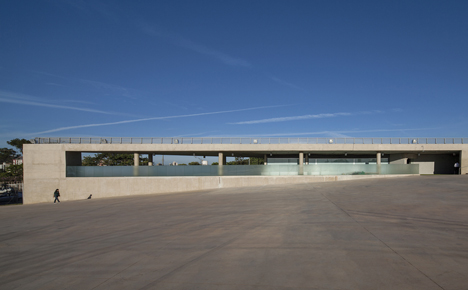
The New Mineirão points out ways in which sports mega events can leave a lasting legacy to the host-cities. Here, even though interventions are made on a stadium scale, they respond to the demands of larger scales, such as the neighbourhood, the landscape and the city itself. Thus, the ambition is that the urban domain should be invited into the realm and scope of the architecture.
